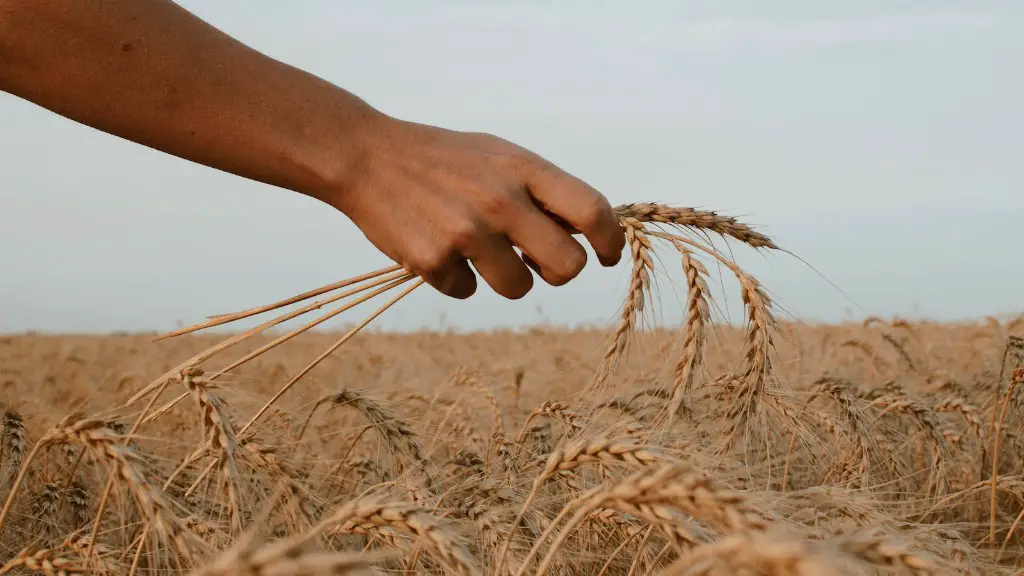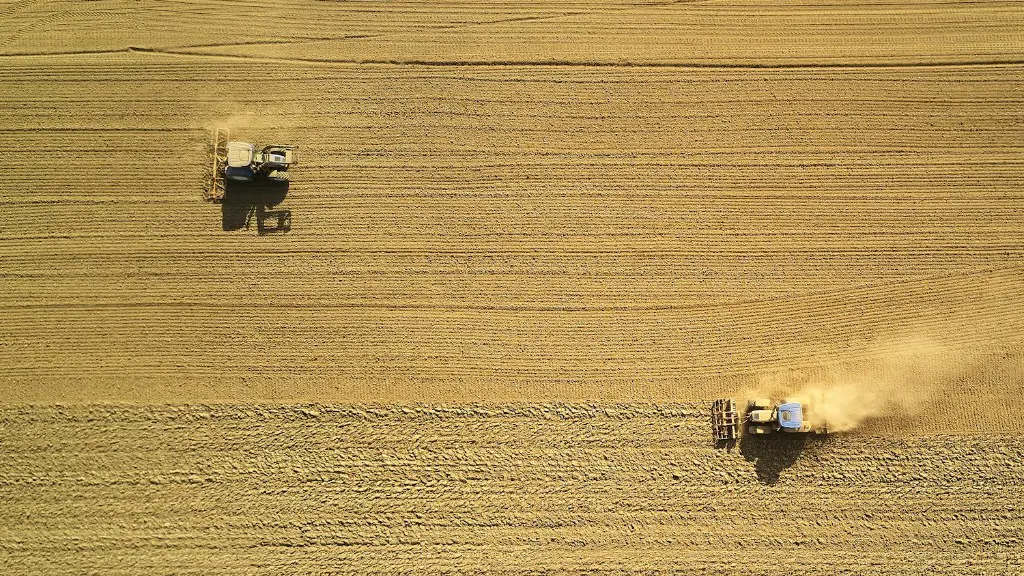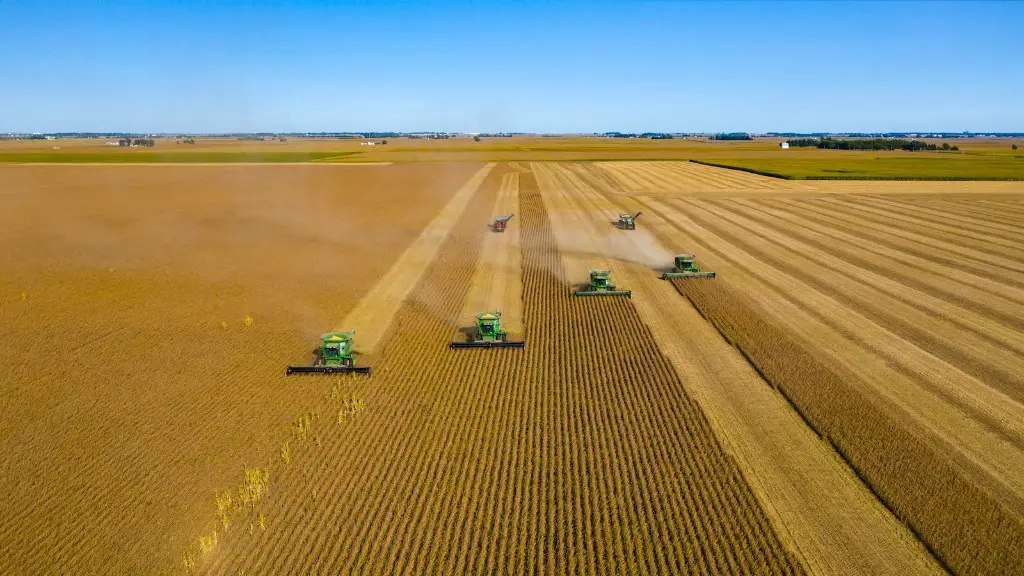Agriculture, food, and natural resources are the essential foundations of human civilization. They are the basis of our economy, our food supply, and our very way of life. Though often taken for granted, these vital resources are under increasing pressure from a growing population and changing climate. It is critical that we understand the principles of agriculture, food, and natural resources management in order to sustain our way of life into the future.
The principles of agriculture, food, and natural resources are the farm management ideas outlined by agriculture extension workers and agricultural education instructors to help farmers and ranchers improve their operations. The focus is on developing efficient and environmentally sound practices that will improve production, profitability, and sustainability.
What is a description of agriculture food & natural resources?
The Agriculture, Food, and Natural Resources cluster is responsible for improving the quality and safety of food, cultivating and preserving our natural resources, and caring for animals. This career pathway is divided into seven pathways: Agribusiness Systems, Animal Systems, Environmental Service Systems, Food Products and Processing Systems, Horticulture Systems, Natural Resources Systems, and Plant Systems.
Organic agriculture is based on a set of principles that aim to create a more sustainable and environmentally friendly method of farming. These principles include health, ecology, fairness, and care. By adhering to these principles, organic agriculture can make a significant contribution to the world.
What does the agriculture, food, and natural resources Cluster include
There are seven career pathways in the Agriculture, Food, and Natural Resources cluster: agribusiness systems; animal systems; food products and processing systems; environmental service systems; natural resources systems; plant systems; and power, structural, and technical systems.
The agribusiness systems pathway focuses on the business aspects of the agriculture and food industries, including marketing, finance, and management. The animal systems pathway focuses on the care and management of animals, including both livestock and companion animals. The food products and processing systems pathway focuses on the production and processing of food, from farm to table. The environmental service systems pathway focuses on the protection and management of natural resources, including both renewable and nonrenewable resources. The natural resources systems pathway focuses on the management and conservation of natural resources, including forests, water, and minerals. The plant systems pathway focuses on the production of plants, including both crops and nursery plants. The power, structural, and technical systems pathway focuses on the design, construction, and maintenance of the infrastructure of the agriculture and food industries, including buildings, machinery, and equipment.
The agricultural and food sectors are a critical part of the US economy, providing 105 percent of total US employment. In 2021, there were 211 million full- and part-time jobs related to agriculture and food, making it one of the largest employers in the country. The sector is also a major contributor to the US economy, with a total output of $1.8 trillion in 2019.
The agricultural and food sectors are vital to the US economy and provide millions of jobs. The sector is also a major contributor to the US economy, with a total output of $1.8 trillion in 2019.
What is Principles of agriculture, food, and natural resources in high school?
The Principles of Agriculture, Food, and Natural Resources course will allow students to develop knowledge and skills regarding career and educational opportunities, personal development, globalization, industry standards, practices, and expectations. This course will help students learn about the various types of careers available in the agriculture, food, and natural resources industry, as well as the skills and education necessary to pursue those careers. In addition, this course will provide students with an understanding of the global nature of the agriculture, food, and natural resources industry and the impact that it has on the world.
Agricultural workers are responsible for producing food, plants, and animals for human consumption. This can include working on a farm, ranch, orchard, greenhouse, or plant nursery. They may also work in a clinic or laboratory as a scientist or engineer.
What are the 5 main principles?
The Five Principles are important guidelines to live by in order to have a successful and fulfilling life. Quality means always striving to improve and be the best that you can be. Responsibility means being accountable for your actions and taking care of yourself and others. Mutuality means treating others with respect and kindness and working together for the common good. Efficiency means using your time and resources wisely. Freedom means being free to pursue your dreams and goals.
agriculture is the science and art of cultivating plants and livestock. It includes the following four main branches:
1. Livestock production: This branch deals with the care and management of farm animals, including cattle, pigs, sheep, goats, horses, and poultry.
2. Crop production: This branch deals with the cultivation of crops, including cereals, fruits, vegetables, and tobacco.
3. Agricultural economics: This branch deals with the economic aspects of agriculture, including farm management, marketing, and policy.
4. Agricultural engineering: This branch deals with the engineering aspects of agriculture, including irrigation, drainage, soil conservation, and farm equipment.
What are 5 important of agriculture
With the world’s population expected to exceed 9 billion by 2050, the demand for food will continue to rise. Agricultural production will need to increase by 60% to meet this demand.
Agriculture is not only important for producing food, but also for producing other products that we use in our everyday lives, such as clothing, fuel, and building materials.
Without agriculture, the world would not be able to sustain its current population. Agriculture is essential to human life and will continue to be so in the future.
Other natural resources are air, sunlight, soil and water. They are all essential for life on Earth. Air is necessary for us to breathe, and it also helps to regulate the Earth’s climate. Sunlight is essential for plant growth, and it also helps to warm the Earth’s surface. Soil is necessary for plant growth and for many animals to live. Water is necessary for all forms of life, and it also helps to regulate the Earth’s climate.
What are the three important agricultural resources?
The food producing sector is critically dependent on land, water, and natural resources. These resources are under increasing pressure from climate change and other environmental problems. Perrin noted that the sector must become more resilient to these challenges in order to maintain food production.
Soil is a vital natural resource. It supports the growth of plants and crops by giving them nutrients. It also helps to regulate the water cycle and maintains soil fertility. Soil is a non-renewable resource, so it is important to conserve it.
Why agriculture is important in our life
Agriculture is the backbone of the world economy, providing most of the world’s food and fabrics. Cotton, wool, and leather are all agricultural products, and agriculture also provides wood for construction and paper products. The methods used in agriculture may vary from one part of the world to another, but the basics are the same: planting, harvesting, and selling crops and livestock.
Crops are the agricultural products that are grown, harvested, or collected. They can include wheat, cotton, fruit, honey, and dairy cows. Farmers are the people who earn a living by farming, and they can be either the managers or operators of the farm.
What are three reasons agriculture is important to humans?
Agriculture is one of the oldest and most important industries in the world. It provides food, clothing, and shelter for people and helps them to enjoy a higher quality of life. Agriculture also plays a vital role in the global economy, providing jobs for millions of people around the world.
The Principles of Agriculture course is designed to give students a foundation in the field of agriculture. The course will cover topics such as crop production, animal husbandry, and agricultural business. By taking this course, students will be able to develop a broad understanding of the agriculture industry and how it works. This course is a great starting point for students who are interested in pursuing a career in agriculture.
What teaches students about agriculture, food, and natural resources
Agricultural education is a great way for students to learn about agriculture, food and natural resources. Agricultural educators teach students a wide variety of skills, including science, math, communications, leadership, management and technology. Agricultural education is a great way for students to learn about the world around them and how to be responsible stewards of the earth.
The principles of food is a great course for underclassmen. It teaches the students about healthy food and better alternatives to sugary and fatty foods. Part of the ciriculum involves the dietary guidelines and also completing service hours. This is a great way for students to learn about food and nutrition and to also give back to the community.
Warp Up
The principles of agriculture, food, and natural resources are based on the need to sustainably manage these vital resources. The key principles include:
– Conserving and renewing natural resources
– Producing food and fiber efficiently
– Enhancing the quality of life
These principles are essential to ensure that we can continue to meet the needs of our growing population while protecting our environment.
Principles of agriculture food and natural resources refer to the basic guidelines for efficient and sustainable management of agricultural resources. Good principles of agriculture food and natural resources help ensure food security and reduce environmental degradation.





